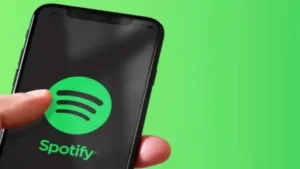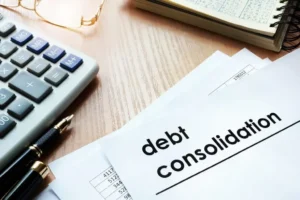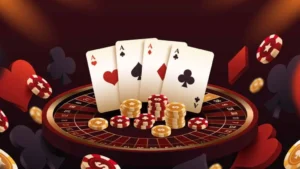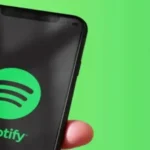Finding the right words can make communication more thoughtful and personal. Instead of repeating the usual phrase “mark your calendars,” there are many warm and caring alternatives you can use. These options can make your reminders feel more friendly, professional, or empathetic, depending on the situation. This article gives you 30 other ways to say “mark your calendars”, complete with examples, scenarios, and explanations so your messages stand out with a personal touch.
What Does “Mark Your Calendars” Mean?
The phrase “mark your calendars” means asking someone to remember an important date or to set a reminder for an upcoming event, meeting, or occasion. It’s a way of ensuring people don’t miss out.
Is It Professional/Polite to Say “Mark Your Calendars”?
Yes, “mark your calendars” is polite and clear. However, in formal or professional emails, it may sound a bit casual. Alternatives can sometimes feel more respectful, engaging, or warm depending on your audience.
Pros or Cons of Using “Mark Your Calendars”
Pros:
- Simple and widely understood
- Works in casual and semi-formal settings
- Quick way to grab attention
Cons:
- Can sound repetitive or cliché
- Might feel too casual in professional settings
- Lacks emotional warmth compared to alternatives
Synonyms For “Mark Your Calendars”
- Save the Date
- Don’t Miss This Date
- Circle the Date
- Keep This Day Free
- Set a Reminder
- Hold the Date
- Don’t Forget This Day
- Reserve the Day
- Lock It In
- Put It on Your Calendar
- Make a Note of This Date
- Don’t Overlook This Day
- Jot This Down
- Don’t Let This Slip
- Save That Day
- Keep the Date Open
- Be Ready on This Date
- Highlight This Day
- Put This Day Aside
- Block Off This Date
- Remember This Date
- Add This Date to Your Planner
- Note the Day
- Be Sure to Keep This in Mind
- Make Room for This Date
- Plan Around This Day
- Pencil It In
- Save Some Time for This
- This Day Belongs to…
- Don’t Skip This Date
1. Save the Date
Scenario: Perfect for weddings, birthdays, company events, and special celebrations.
Examples:
- “Please save the date for our annual team dinner on May 10.”
- “Don’t forget to save the date for Sarah’s baby shower!”
- “We’d love if you could save the date for our product launch.”
Tone: Warm, friendly, and slightly formal.
Explanation: This phrase is one of the most common alternatives to “mark your calendars.” It carries a polite and caring feel, often used for important personal or professional events.
2. Don’t Miss This Date
Scenario: Great for creating excitement about a can’t-miss event.
Examples:
- “Please, don’t miss this date—our CEO will be speaking.”
- “Don’t miss this date: the community picnic is on July 4.”
- “Make sure you don’t miss this date—big surprises await!”
Tone: Energetic and enthusiastic.
Explanation: This phrase highlights the importance of the date, making it clear that the event is special and worth remembering. It works well in both formal reminders and fun invites.
3. Circle the Date
Scenario: Ideal for casual, friendly invitations or fun gatherings.
Examples:
- “Go ahead and circle the date for our family BBQ!”
- “Be sure to circle the date for the school reunion.”
- “Circle the date—we’re planning something exciting!”
Tone: Casual, friendly, and lighthearted.
Explanation: This alternative creates a visual image of someone literally circling the date on a calendar. It’s playful and personal, best suited for informal settings.
4. Keep This Day Free
Scenario: Best for friendly reminders about events that require time commitment.
Examples:
- “Please keep this day free for our strategy workshop.”
- “Make sure you keep this day free—family reunion is on August 20.”
- “We’d love you to keep this day free for our charity event.”
Tone: Considerate and warm.
Explanation: This phrase shows care for someone’s schedule. It feels respectful while still encouraging them to set aside the date.
5. Set a Reminder
Scenario: Useful for both professional meetings and casual events.
Examples:
- “Please set a reminder for our 2:00 PM project meeting.”
- “Don’t forget to set a reminder for the registration deadline.”
- “Set a reminder—we’re going live this Friday!”
Tone: Clear and straightforward.
Explanation: This phrase is direct and practical, making it a strong fit for work emails, deadlines, or digital invitations.
6. Hold the Date
Scenario: Commonly used in corporate invites and formal occasions.
Examples:
- “Kindly hold the date for our leadership summit.”
- “Please hold the date for our annual shareholders’ meeting.”
- “We invite you to hold the date for our gala evening.”
Tone: Formal and professional.
Explanation: This phrase has a polished and businesslike feel, often used in official event communications.
7. Don’t Forget This Day
Scenario: Works well in both personal invites and casual notes.
Examples:
- “Don’t forget this day—Emily’s graduation party is coming up!”
- “Don’t forget this day, we’re celebrating our store’s anniversary.”
- “Please don’t forget this day—it’s special to us.”
Tone: Caring and slightly informal.
Explanation: This phrase makes the reminder feel personal, as if you’re making sure someone doesn’t miss something important to you.
8. Reserve the Day
Scenario: Perfect for formal invites such as weddings, banquets, or conferences.
Examples:
- “Kindly reserve the day for our wedding celebration.”
- “Please reserve the day for our gala dinner.”
- “Don’t forget to reserve the day for the conference.”
Tone: Elegant and polite.
Explanation: This alternative feels respectful and classy, making it ideal for special or prestigious events.
9. Lock It In
Scenario: Best for casual conversations with friends, colleagues, or small groups.
Examples:
- “Let’s lock it in—Friday at 7 PM, dinner at my place.”
- “Lock it in for our weekend getaway!”
- “Don’t forget, lock it in for the game night.”
Tone: Fun, casual, and conversational.
Explanation: This phrase has an energetic and informal vibe, often used when confirming plans with close people.
10. Put It on Your Calendar
Scenario: Suitable for emails, reminders, and formal notes.
Examples:
- “Please put it on your calendar—training is scheduled for next week.”
- “Put it on your calendar: office party on December 15.”
- “Don’t forget to put it on your calendar—deadline is Tuesday.”
Tone: Professional yet approachable.
Explanation: This phrase is clear and versatile, making it effective for both work communication and friendly reminders.
11. Make a Note of This Date
Scenario: Best for gentle reminders in both personal and professional contexts.
Examples:
- “Please make a note of this date for our upcoming training.”
- “Be sure to make a note of this date—family gathering at Grandma’s.”
- “Kindly make a note of this date for our client meeting.”
Tone: Respectful and thoughtful.
Explanation: This phrase sounds polite and caring, making it useful when you want to emphasize importance without sounding pushy.
12. Don’t Overlook This Day
Scenario: Works for events that may easily slip someone’s mind.
Examples:
- “Please don’t overlook this day—the submission deadline is Friday.”
- “Don’t overlook this day: Sarah’s farewell lunch.”
- “Make sure you don’t overlook this day, it means a lot to us.”
Tone: Slightly serious but considerate.
Explanation: This phrase gently stresses the importance of remembering without being harsh.
13. Jot This Down
Scenario: Great for casual reminders among friends or teammates.
Examples:
- “Hey, jot this down—game night is Saturday at 8.”
- “Jot this down: Project review on Monday.”
- “Don’t forget to jot this down, birthday dinner next week!”
Tone: Informal and conversational.
Explanation: This alternative has a friendly, easy-going style, perfect for quick reminders.
14. Don’t Let This Slip
Scenario: Ideal for important deadlines or must-attend events.
Examples:
- “Please, don’t let this slip—final exam is on May 3.”
- “Don’t let this slip: conference registration ends Friday.”
- “We hope you don’t let this slip—our family reunion is coming soon.”
Tone: Encouraging and slightly urgent.
Explanation: This phrase creates a sense of urgency, reminding people that the date is critical.
15. Save That Day
Scenario: Best for friendly invitations and casual events.
Examples:
- “Save that day—we’re throwing a surprise party!”
- “Don’t forget to save that day for our neighborhood BBQ.”
- “We’d love if you could save that day for our get-together.”
Tone: Warm and friendly.
Explanation: Similar to “save the date,” but more informal and commonly used among close friends and family.
16. Keep the Date Open
Scenario: Common for personal and semi-formal invites.
Examples:
- “Please keep the date open for our engagement party.”
- “Keep the date open—our church gathering is on Sunday.”
- “Make sure to keep the date open for our team-building event.”
Tone: Polite and considerate.
Explanation: This phrase shows respect for people’s schedules while still warmly inviting them.
17. Be Ready on This Date
Scenario: Suitable for deadlines, exams, or important meetings.
Examples:
- “Please be ready on this date—the audit will take place then.”
- “Be ready on this date: final project presentations.”
- “Make sure to be ready on this date—the trip is confirmed!”
Tone: Direct and motivating.
Explanation: This phrase is clear and action-focused, reminding people not just to note the date, but to prepare for it.
18. Highlight This Day
Scenario: Works for both casual and formal reminders.
Examples:
- “Please highlight this day on your calendar—company anniversary celebration.”
- “Don’t forget to highlight this day—school play at 6 PM.”
- “Highlight this day, it’s going to be unforgettable!”
Tone: Enthusiastic and engaging.
Explanation: Creates a visual and exciting reminder, making the date feel special.
19. Put This Day Aside
Scenario: Used when asking people to dedicate a specific day.
Examples:
- “Please put this day aside for our charity fundraiser.”
- “Put this day aside—it’s Dad’s retirement party.”
- “We’d love if you could put this day aside for our wedding.”
Tone: Gentle and thoughtful.
Explanation: This alternative feels personal and respectful, as if you’re asking for someone’s time as a gift.
Read More:30 Other Ways to Say ‘Please Advise’ (With Examples)
20. Block Off This Date
Scenario: Often used in corporate or professional communication.
Examples:
- “Please block off this date for the quarterly review.”
- “Don’t forget to block off this date—client presentation at 10 AM.”
- “Block off this date—our leadership retreat is confirmed.”
Tone: Professional and firm.
Explanation: This phrase is straightforward and businesslike, making it perfect for formal scheduling requests.
21. Remember This Date
Scenario: Great for personal invites, holidays, and important milestones.
Examples:
- “Please remember this date—it’s our wedding anniversary party.”
- “Remember this date: the charity run is on June 2.”
- “Don’t forget to remember this date—family gathering on Sunday.”
Tone: Warm and caring.
Explanation: This phrase feels personal and considerate, making it a good fit for family, friends, or heartfelt occasions.
22. Add This Date to Your Planner
Scenario: Ideal for professionals and students who use planners or agendas.
Examples:
- “Please add this date to your planner—final exam is scheduled.”
- “Don’t forget to add this date to your planner—big team meeting.”
- “Add this date to your planner—community fair on Saturday.”
Tone: Professional and organized.
Explanation: This phrase is clear and practical, useful for audiences who value structured reminders.
23. Note the Day
Scenario: Common for quick, casual reminders.
Examples:
- “Please note the day—team lunch on Wednesday.”
- “Note the day: the concert starts at 8 PM.”
- “Don’t forget to note the day—our housewarming party.”
Tone: Simple and friendly.
Explanation: This is a short and straightforward way of reminding someone, without sounding too formal or too casual.
24. Be Sure to Keep This in Mind
Scenario: Works well in professional contexts where reminders matter.
Examples:
- “Please keep this in mind—training starts on Tuesday.”
- “Keep this in mind: the registration deadline is Friday.”
- “Don’t forget to keep this in mind—we’re expecting you.”
Tone: Gentle and professional.
Explanation: This phrase has a polite, thoughtful feel, making it suitable when you don’t want to sound commanding.
25. Make Room for This Date
Scenario: Good for events that require extra time commitment.
Examples:
- “Please make room for this date—the whole day will be dedicated to workshops.”
- “Make room for this date—family road trip is happening!”
- “Don’t forget to make room for this date in your plans.”
Tone: Thoughtful and considerate.
Explanation: This alternative highlights the idea of freeing up space, perfect for events requiring flexibility.
26. Plan Around This Day
Scenario: Suitable for professional and casual planning.
Examples:
- “Please plan around this day—the audit will take place.”
- “Plan around this day: school trip scheduled for Friday.”
- “Don’t forget to plan around this day—it’s important to us.”
Tone: Clear and thoughtful.
Explanation: This phrase shows awareness of people’s busy schedules while still emphasizing the importance of the date.
27. Pencil It In
Scenario: Informal and casual, good for tentative plans.
Examples:
- “Go ahead and pencil it in—coffee on Thursday?”
- “Pencil it in: possible team outing next weekend.”
- “Don’t forget to pencil it in—it’ll be fun!”
Tone: Casual and flexible.
Explanation: “Pencil it in” gives the impression that the plan is not set in stone, but likely to happen.
28. Save Some Time for This
Scenario: Used when asking people to prioritize an event.
Examples:
- “Please save some time for this—the leadership workshop.”
- “Save some time for this: Mom’s birthday dinner.”
- “Don’t forget to save some time for this—volunteer day.”
Tone: Caring and respectful.
Explanation: This alternative is warm and thoughtful, showing you value someone’s time.
29. This Day Belongs to…
Scenario: Creative option for special, personal events.
Examples:
- “This day belongs to Sarah’s graduation—please join us.”
- “This day belongs to our company’s big celebration.”
- “Don’t forget, this day belongs to family time.”
Tone: Unique and personal.
Explanation: This phrase makes the day feel meaningful and dedicated, great for emotional or significant events.
30. Don’t Skip This Date
Scenario: Works best when stressing the importance of attendance.
Examples:
- “Please don’t skip this date—team-building day.”
- “Don’t skip this date: it’s Grandpa’s birthday!”
- “Make sure you don’t skip this date—it’s special.”
Tone: Strong and encouraging.
Explanation: This alternative has a sense of firmness and importance, ensuring people take the reminder seriously.
Conclusion
Finding the right alternative to “mark your calendars” allows you to match the tone of your message—whether it’s casual, formal, or deeply personal. Using these 30 alternatives, you can make your communication feel more engaging, respectful, and memorable. The right words show not only the importance of the date but also the care you put into the reminder.

Emma Brooke is a passionate advocate for effective communication and language mastery. As a dedicated professional in the field of grammar and writing, Emma brings a wealth of knowledge and expertise to those seeking to improve their linguistic skills. With a focus on clarity, precision, and style, Emma Brooke is committed to helping individuals refine their language use to communicate confidently and effectively.












